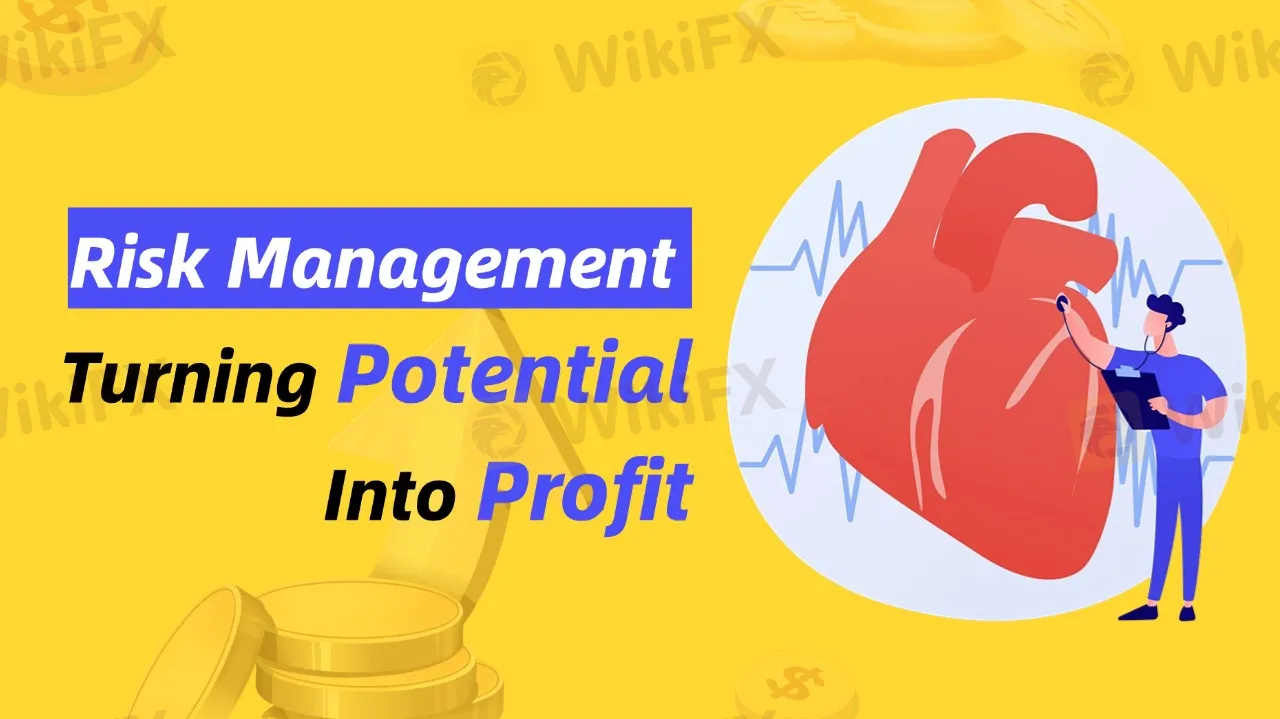简体中文
繁體中文
English
Pусский
日本語
ภาษาไทย
Tiếng Việt
Bahasa Indonesia
Español
हिन्दी
Filippiiniläinen
Français
Deutsch
Português
Türkçe
한국어
العربية
Risk Management: Turning Potential Into Profit
Abstract:In Forex Trading, Without Effective Risk Management, You Risk Huge Losses and the Complete Depletion of Your Account.

The Forex market is highly volatile, with various factors influencing currency fluctuations. Even experienced traders, without effective risk management, will struggle to turn their profits into tangible gains.
One of the most important actions in risk management is setting stop-loss orders. Let's say you're a Forex trader deciding to trade EUR/USD. You analyze and predict the euro might rise, so you decide to go long (buy). Your target price is 1.1000, but you're concerned the market might experience a brief pullback. Therefore, you set a stop-loss at 1.0950, meaning if the market drops to 1.0950, your position will automatically close to prevent further losses.
Suppose the euro does experience a brief dip and hits 1.0950, triggering the stop-loss. Although you lose 50 pips, the stop-loss limits your loss within an acceptable range, preventing the market volatility from turning into a catastrophic loss.
Another key aspect is proper capital allocation, ensuring one failed trade doesn't jeopardize the health of your overall account. Without controlling the loss size on each trade, a single large loss could wipe out your entire account, leading to a “game over” situation.
Equally important is avoiding emotional trading. Stick to your strategy and adjust based on real-time market conditions. If your gut tells you the market will rebound and you ignore your pre-set stop-loss and position size rules, and the market doesn't move as expected but instead continues to fall, you may find your position severely underwater, further amplifying your loss. Had you stayed calm and followed your strategy, your loss would have been contained within a manageable range.
Emotional trading is often the root cause of losses, while strict risk management helps you stick to your plan and maintain stability in your trades.
In conclusion, risk management is essential in Forex trading. It not only helps investors control losses but also provides a stable framework for profitable trading amidst market volatility. With effective risk management, investors can minimize unnecessary risks and ensure sustainable profits in the long run. A good risk management strategy will directly impact whether an investor can survive and succeed in this uncertain market.

Disclaimer:
The views in this article only represent the author's personal views, and do not constitute investment advice on this platform. This platform does not guarantee the accuracy, completeness and timeliness of the information in the article, and will not be liable for any loss caused by the use of or reliance on the information in the article.
Read more

INFINOX Partners with Acelerador Racing for Porsche Cup Brazil 2025
INFINOX has teamed up with Acelerador Racing, sponsoring an Acelerador Racing car in the Porsche Cup Brazil 2025. This partnership shows INFINOX’s strong support for motorsports, adding to its current sponsorship of the BWT Alpine F1 Team.

The Daily Habits of a Profitable Trader
Every professional trader follows a structured approach to ensure they are well-prepared, disciplined, and able to seize opportunities with confidence. Whether you are a seasoned investor or an aspiring trader, adhering to a robust daily checklist can significantly enhance your performance. Use this checklist to check if you are a qualified trader

The Impact of Interest Rate Decisions on the Forex Market
Interest rate changes determine currency attractiveness, influencing capital flows and exchange rate trends. Understanding this mechanism helps investors navigate the forex market effectively.

Interactive Brokers Launches Forecast Contracts in Canada for Market Predictions
Interactive Brokers introduces Forecast Contracts in Canada, enabling investors to trade on economic, political, and climate outcomes. Manage risk with ease.
WikiFX Broker
Latest News
TradingView Brings Live Market Charts to Telegram Users with New Mini App
Trump tariffs: How will India navigate a world on the brink of a trade war?
Interactive Brokers Launches Forecast Contracts in Canada for Market Predictions
Authorities Alert: MAS Impersonation Scam Hits Singapore
Stocks fall again as Trump tariff jitters continue
INFINOX Partners with Acelerador Racing for Porsche Cup Brazil 2025
Regulatory Failures Lead to $150,000 Fine for Thurston Springer
April Forex Trends: EUR/USD, GBP/USD, USD/JPY, AUD/USD, USD/CAD Insights
March Oil Production Declines: How Is the Market Reacting?
Georgia Man Charged in Danbury Kidnapping and Crypto Extortion Plot
Currency Calculator







